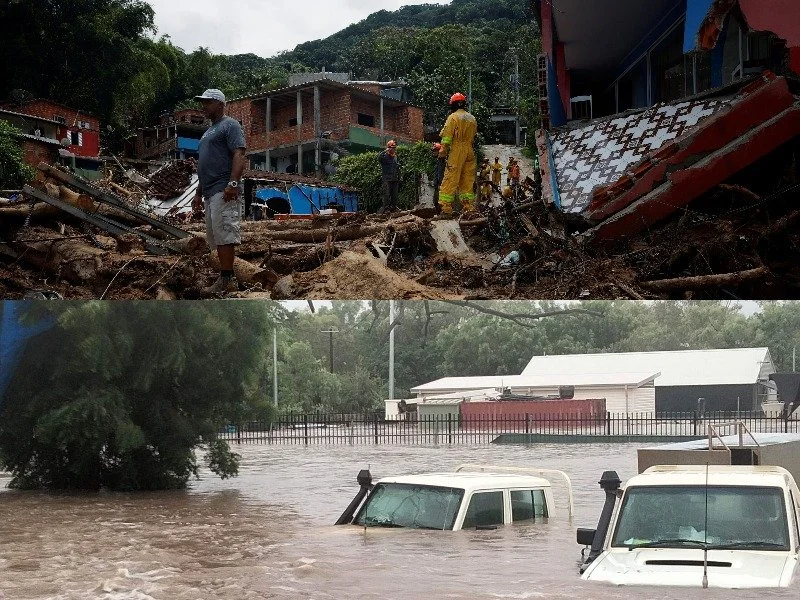FROM DISASTER TO DISPLACEMENT: FITZROY CROSSING RESIDENTS REBUILD AND REFLECT
By Marli Ryan
When devastating floods hit Fitzroy Crossing in early 2023, the destruction was not only severe but also painfully drawn out.
Natalie Davey, a local resident and community advocate, recalls the emotional weight of watching her home and the homes of her entire community slowly deteriorate in the weeks and months following the disaster.
Ms Davey explained that it was a very slow process of realising that they had to rebuild the entire house, other than the roof and the metal frame; nothing could be saved.
While the damage to physical property was immense, the emotional toll was just as profound. Ms Davey described the unique grief that comes from losing everything over time, unlike a fire or sudden destruction; this was a drawn-out process of repeated realisations and small heartbreaks.
“I met someone who lost their house in a fire, which is just as devastating, but this—it's a really different space from everything gone in a moment to a really slow process of constantly having to realise you've lost stuff. So it's just a really different grief process,” she said.
Ms Davey said that while her family was among the fortunate ones who could remain in Fitzroy Crossing and eventually refurbish their home, others were displaced to towns like Derby and Broome, often without clear communication or timelines. She said community support played a vital role in survival and recovery.
She said there was a real beauty in how people came together. The Bunuba Rangers found boats, locals used kayaks to get elders and kids to safety, it was mob looking after mob.
However, as the months dragged on and temporary housing was slow to arrive, Ms Davey said it became clear that more needed to be done to empower local communities during disaster recovery, rather than sidelining them.
Her experience is one of many featured in the upcoming documentary Disaster Conversations, which also draws parallels with flooding disasters in Brazil, highlighting the global reality of climate change and increasing displacement.
“More of us are going to become climate change refugees”, she said
“There's just constant proof whether it's fires, droughts, floods, they are just increasing in severity and also the frequency that they’re happening in different places.”
As communities around the world brace for the effects of extreme weather, Ms Davey hopes the film prompts change not just in emergency response, but in how stories of survival and resilience are valued.
She said that devastations like this are something you never really get over, but having support is crucial. If people start to listen to the needs of communities and those who have experienced hardships of this magnitude, then possibly next time they will be better prepared.



